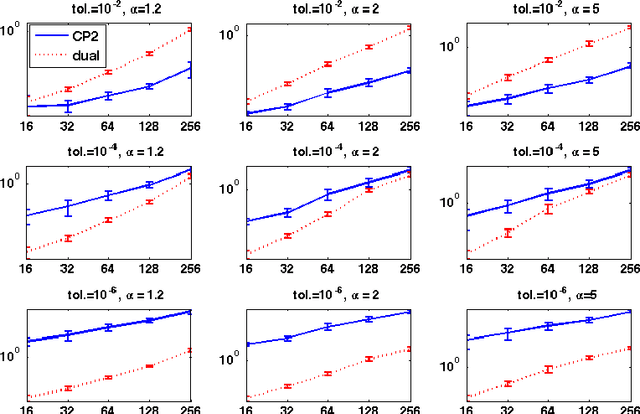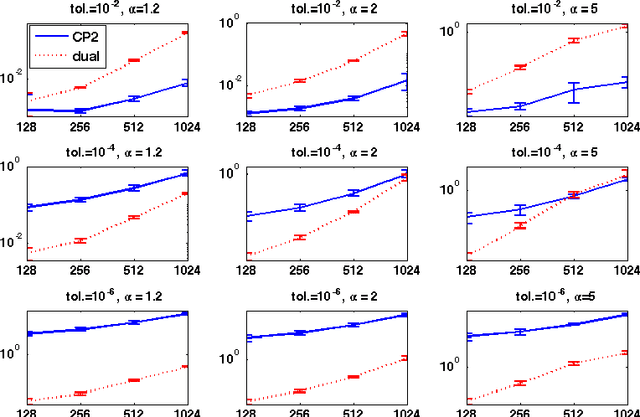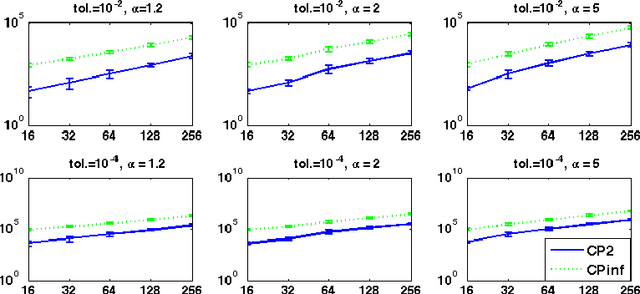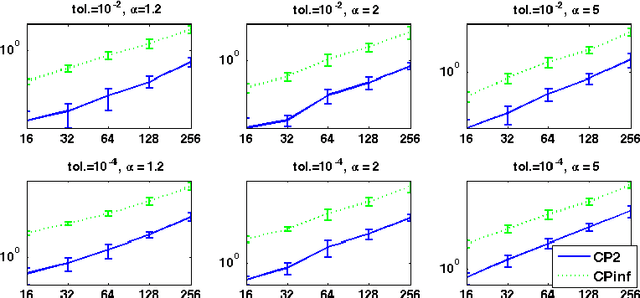Sofia Mosci
Proximal methods for the latent group lasso penalty
Sep 03, 2012



Abstract:We consider a regularized least squares problem, with regularization by structured sparsity-inducing norms, which extend the usual $\ell_1$ and the group lasso penalty, by allowing the subsets to overlap. Such regularizations lead to nonsmooth problems that are difficult to optimize, and we propose in this paper a suitable version of an accelerated proximal method to solve them. We prove convergence of a nested procedure, obtained composing an accelerated proximal method with an inner algorithm for computing the proximity operator. By exploiting the geometrical properties of the penalty, we devise a new active set strategy, thanks to which the inner iteration is relatively fast, thus guaranteeing good computational performances of the overall algorithm. Our approach allows to deal with high dimensional problems without pre-processing for dimensionality reduction, leading to better computational and prediction performances with respect to the state-of-the art methods, as shown empirically both on toy and real data.
Nonparametric sparsity and regularization
Aug 13, 2012



Abstract:In this work we are interested in the problems of supervised learning and variable selection when the input-output dependence is described by a nonlinear function depending on a few variables. Our goal is to consider a sparse nonparametric model, hence avoiding linear or additive models. The key idea is to measure the importance of each variable in the model by making use of partial derivatives. Based on this intuition we propose a new notion of nonparametric sparsity and a corresponding least squares regularization scheme. Using concepts and results from the theory of reproducing kernel Hilbert spaces and proximal methods, we show that the proposed learning algorithm corresponds to a minimization problem which can be provably solved by an iterative procedure. The consistency properties of the obtained estimator are studied both in terms of prediction and selection performance. An extensive empirical analysis shows that the proposed method performs favorably with respect to the state-of-the-art methods.
 Add to Chrome
Add to Chrome Add to Firefox
Add to Firefox Add to Edge
Add to Edge